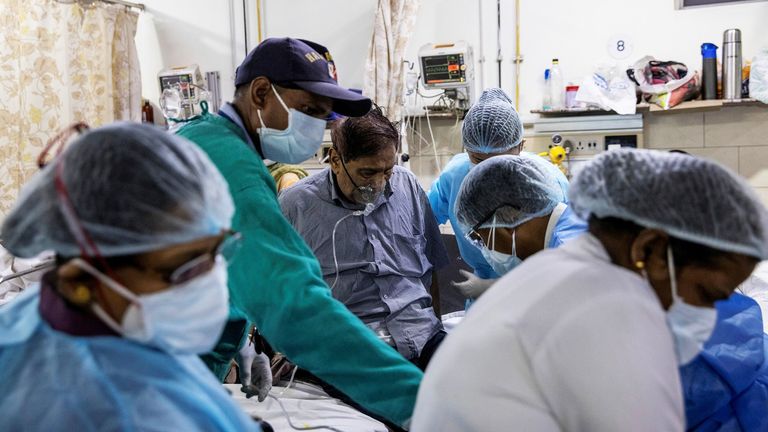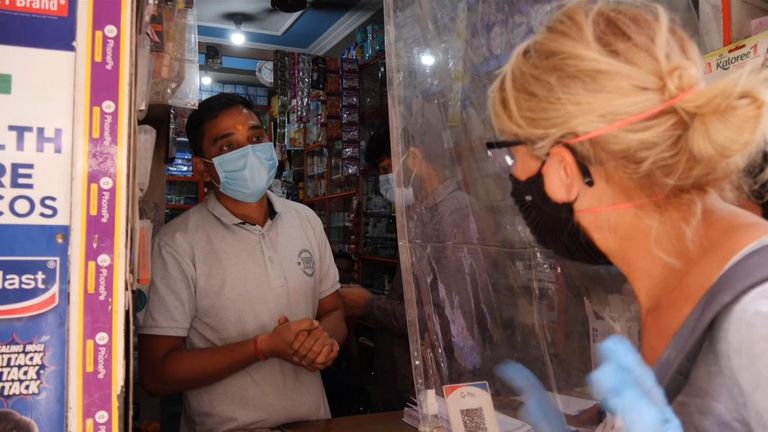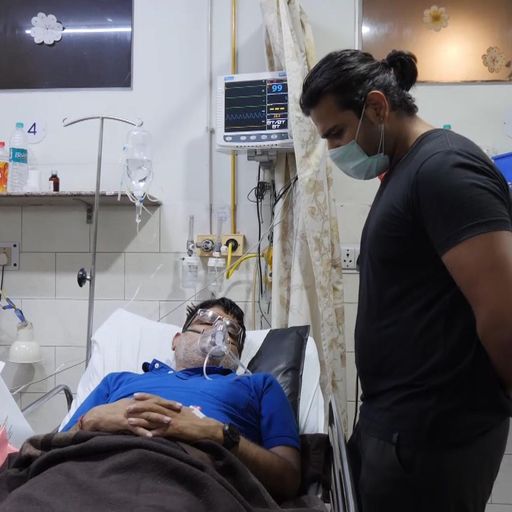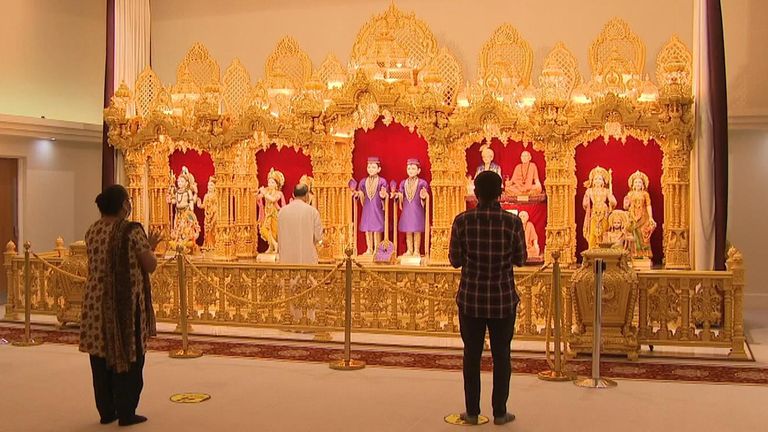The health ministry also reported another 3,449 deaths for the same period.
India is now the second nation in the world, after the United States, to pass the milestone with health ministry data showing 222,408 deaths since the pandemic began.
The government says infection rates are coming down, after the country set yet another daily global record for COVID-19 cases on Saturday, with 401,993 new infections.
But experts believe the true figure for COVID-19 cases and fatalities is higher.
A recent surge of new infections – faster than anywhere else in the world – has left the healthcare system in the world’s second-largest country by population on the brink of collapse.
Dire oxygen shortages are being experienced in India as many hospitals run out, leaving families desperately trying to source some privately to help their loved ones stay alive.
Critics have accused the government of mixed messaging, saying premature declarations of victory during the ongoing pandemic have encouraged people to relax when they should have continued to social distance, wear masks and avoid large crowds.
At least 11 states and regions have ordered curbs on movement to stem infections, but prime minister Narendra Modi’s government is reluctant to announce a national lockdown, concerned about the economic impact.
It has also allowed massive crowds to gather for Hindu religious festivals and political rallies before state elections.
The UK has this week announced it is sending an extra 1,000 ventilators to India.
International Trade Secretary Liz Truss was set to hold talks on Tuesday with her Indian counterpart over what more assistance the UK can offer.
“It’s a heartbreaking situation in India and my heart goes out to the people of India in the severe problems they’re facing,” she told Sky News.
“The UK has already sent 600 pieces of equipment out, we’re sending oxygen out and we’ve got another shipment this week as well.
“And we’re working very, very closely with partners across the world to make sure India has the supplies it needs.
“Of course, India was of huge help to the UK last year, making sure we had the paracetamol we need.
“They’re a close ally of the UK and we really are working hard to make sure we can help as much as possible.”
Asked whether the UK and other countries should be sharing their vaccine supplies with India, Ms Truss highlighted how the UK was the third-largest donor to the COVAX vaccine-sharing scheme.
“The AstraZeneca vaccine is being produced in India and that is being done under voluntary licence,” she added.
“I’m working very closely with Dr Ngozi (Okonjo-Iweala) at the World Trade Organisation to see what more we can do to ramp up vaccine supply across the world.
“Nobody is safe until everybody is safe and we need to make sure we increase supply as much as possible – of course to continue with our vaccination programme here in the UK, but also to make sure the people of India are vaccinated and across the world.
“But, in terms of India, the immediate issue is oxygen. That is our focus, that is the product we’re getting out to India as rapidly as possible because that is the immediate issue they’re facing.”
Meanwhile, Labour leader Sir Keir Starmer told Sky News: “The more we can do to assist India, the better.
“I know the government is already taking steps in that direction and I urge them to increase that where they can.
“It’s got to be a global response, but I think it’s a reminder that – notwithstanding the successful rollout of the vaccine here – we won’t be through this, truly through this, until across the world we’ve got the virus completely under control.
“And I think many, many people will be distressed looking at the situation currently in India.”
Dr Punyabrata Goon, of the West Bengal Doctors’ Forum, described “a terrifying crisis”.
“It’s a day-to-day fight,” said B.H. Narayan Rao, a district official in the southern town of Chamarajanagar in Karnataka.
“Every time we have to struggle to get our quota of our oxygen cylinders.”
Exams have been postponed for trainee doctors and nurses, freeing them up to join in the fight, while volunteer groups in the capital New Delhi have been providing oxygen to patients in makeshift tents outside a temple.
Gurpreet Singh Rummy, who runs the service, told Reuters: “No one should die because of a lack of oxygen. It’s a small thing otherwise, but nowadays, it is the one thing everyone needs.”







No comments:
Post a Comment
Note: only a member of this blog may post a comment.